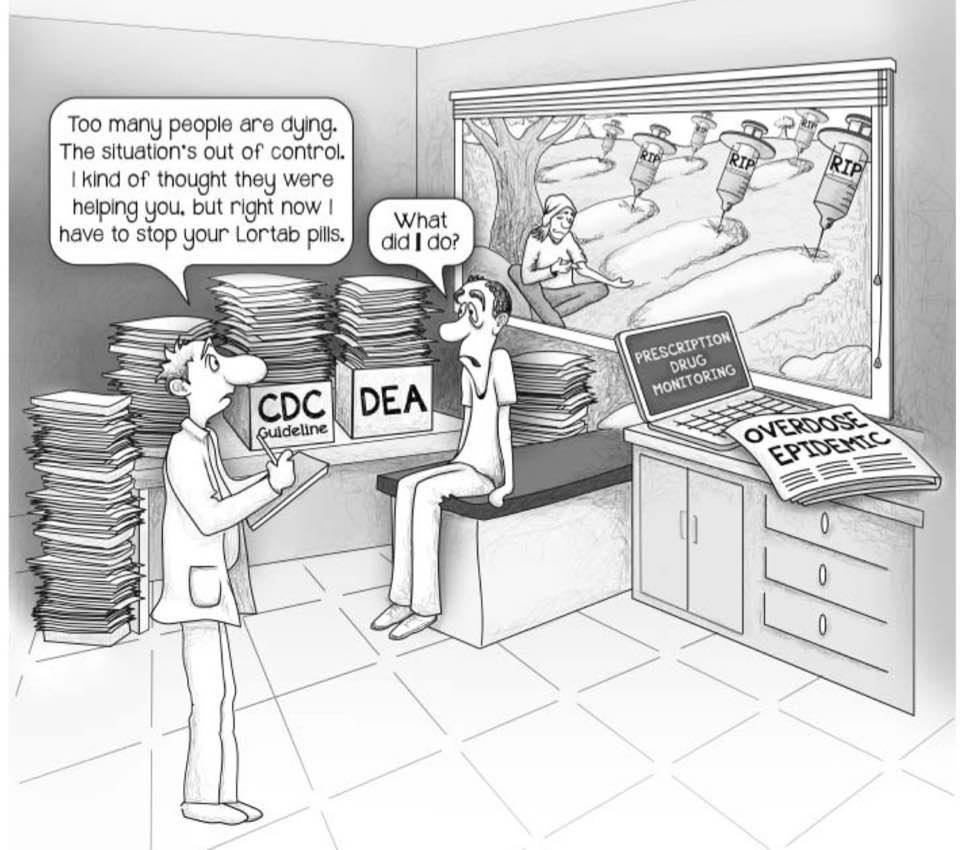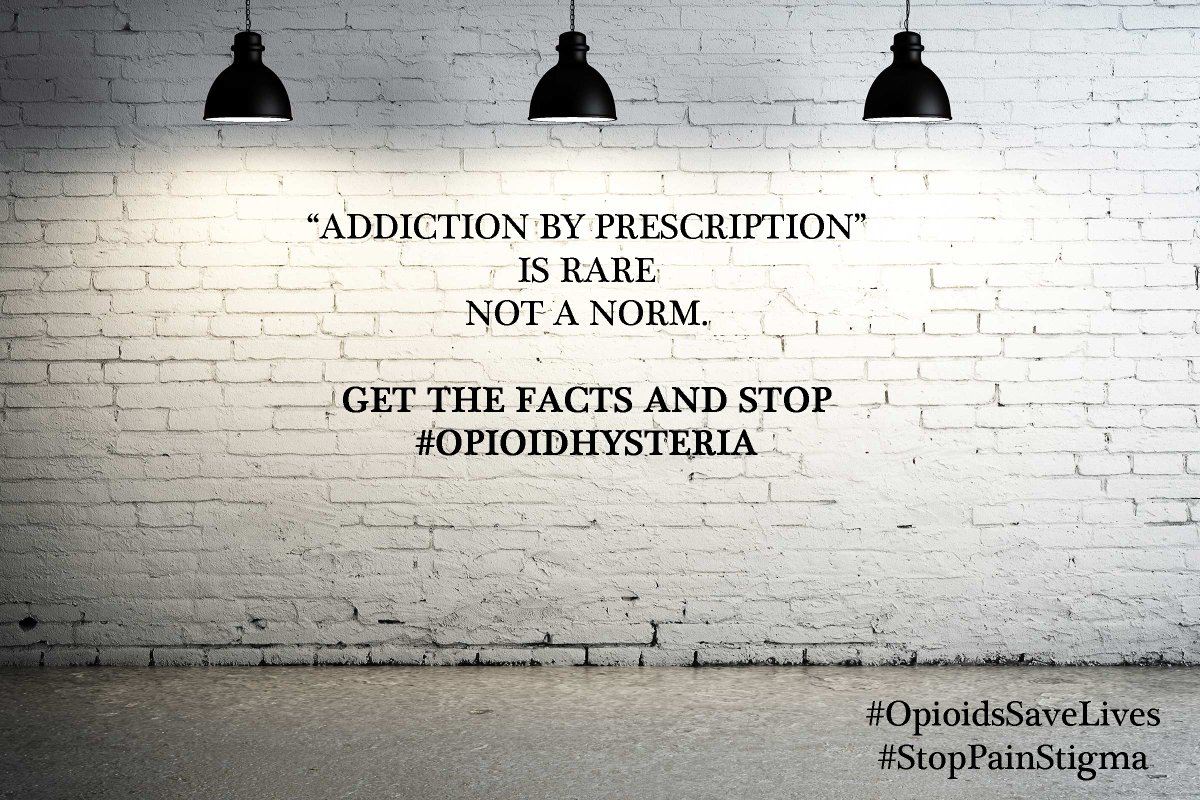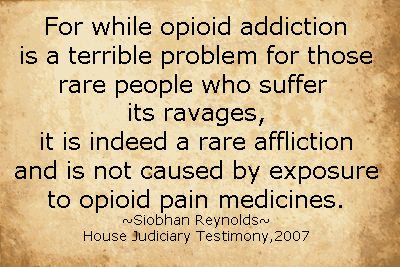1-Thread.
Grievance letter in thread, written in 2014.
Prior to CDC guidelines.
I was dismissed out of hand, told I was 'free to find another healthcare provider'.
Since then, things have gotten far more deadly for people in pain...
@NPR @greggutfeld @MSNBC @CNN @DatelineNBC
Grievance letter in thread, written in 2014.
Prior to CDC guidelines.
I was dismissed out of hand, told I was 'free to find another healthcare provider'.
Since then, things have gotten far more deadly for people in pain...
@NPR @greggutfeld @MSNBC @CNN @DatelineNBC

2-July 18th 2014
To Whom It May Concern:
Let me begin by saying that I feel that my doctor has abandoned me. Kaiser Permanente has made me sign a pain contract under extreme duress and I feel, at the very least, that my patient rights have been violated; if not my civil rights.
To Whom It May Concern:
Let me begin by saying that I feel that my doctor has abandoned me. Kaiser Permanente has made me sign a pain contract under extreme duress and I feel, at the very least, that my patient rights have been violated; if not my civil rights.

3-This letter is being written in hopes of revising a system that I feel discriminates, marginalizes, and has the potential to alienate and cause more harm than good in regard to patients seeking relief from chronic pain. 

4-It is my understanding, based on what I have been told by Kaiser personnel thus far, that there is a new “STANDARD OF CARE” put forth by the DEA and/or FDA to combat what is referred to as the growing ‘drug epidemic’ in the U.S. 

5-I was told by several employees of Kaiser that this new 'Standard of Care' requires any person who takes controlled drugs for an extended period of time be required to submit to drug testing every 6 months.
6- The ‘pain contract' that must be signed stipulates that the pt agrees to show up for random pill counts, to only get medication from their primary care physician, or an assigned pain management clinic physician, and that the pt will only fill prescriptions at one pharmacy. 

7-If any of these stipulations are not agreed to or met, they will be considered to be exhibiting drug seeking behavior and can be immediately discharged from care, often with 'drug seeking behavior' added to their medical chart. 

8-From an outside perspective some may say that if one has nothing to hide then it shouldn’t be an issue to agree to these policies & practices.
I assert that this amounts to a violation of an individual’s right regarding access to reasonable medical care and treatment.
I assert that this amounts to a violation of an individual’s right regarding access to reasonable medical care and treatment.

9- These restrictive policies put unnecessary burdens and barriers to care on patients who are seriously ill and/or injured. They make it beyond difficult to find medical care in emergency situations, or to care in general.
10-There is also the issue of violating of the right of American citizens to be free from illegal search and seizure without probable cause or due process. 

11-People seeking relief from unrelenting pain will often do virtually anything to find relief. They will likely consent under duress to risky medical procedures or medications that may or may not help them, all under the threat of not recieving medicines that already do help. 

12 They will sign the contracts, submit to drug tests despite the humiliation, indignation, being treated like a criminal; while forced to tolerate insinuations they are liars or that must prove that they are innocent of 'wrongdoing' in order to receive medical treatment. 

13-It is important to note that some patients seeking medical care will stop seeing their doctor altogether to avoid being treated like a liar or criminal and they will end up suffering every day for the rest of their lives. 

14-Others may turn to self medicating with illicit drugs or alcohol to try to find relief when they no longer feel they can seek care from their doctor. This would actually work against the objective of reducing illicit drug use and increase the incidence of overdose. 

15-I think the new 'Standard' is unconscionable and in no way provides a solution to the growing problem with overdoses in our country.
These new policies and mandates however are proving to be very effective in increasing stigma that pts with chronic pain face.
These new policies and mandates however are proving to be very effective in increasing stigma that pts with chronic pain face.

16-I signed Kaiser's pain contract and complied with a urine drug test under what I consider to be extreme duress. I was told if I did not comply fully I would no longer receive medication or treatment for my condition.
My results showed I was 'compliant'.
My results showed I was 'compliant'.

17-Due to the stigma in our country on the use of 'opioids', patients who find relief from their daily pain with responsible use of opioid MEDICATIONS, are often automatically viewed in a negative light and labeled by medical personnel as 'drug seekers'. 

18-While a very small percent might misuse a prescribed drug, divert a prescribed medicine, suffer accidental overdose, or experience severe life threatening medication interactions, the majority of patients taking medications responsibly do not. 

19-Patients should not be assumed to be engaged in illegal or inappropriate drug use, nor should they have to prove first that they are not engaged in illegal or inappropriate drug use in order to receive adequate medical treatment for pain even when opiates are needed. 

20-I would also like to add that putting patients under additional stress is detrimental in regard to a patient's condition as stress has been shown to adversely affect the immune system, worsen or cause flares in chronic illness, and even cause increases in the pain response. 

21-It is my hope that by bringing attention to the problems that people with chronic pain face there might be a shift in perspective in how they are treated and improvement in regard to policies and practices currently being imposed on them. 

22- Perhaps if 'opioid' policies change it will restore the ability for those greatly suffering to receive quality medical care, allowing them some measure of quality of life. At the very least maybe they will be able to be treated with the dignity that all patients deserve. 

23-This thread has been done to kick off #PainAwarenessMonth, and in honor and tribute to all in in the pain community who have lost their lives due to #OpioidHysteria.
I hope that things change for everyone soon, the assault on pain patients has gone on for far too long already.
I hope that things change for everyone soon, the assault on pain patients has gone on for far too long already.

• • •
Missing some Tweet in this thread? You can try to
force a refresh






